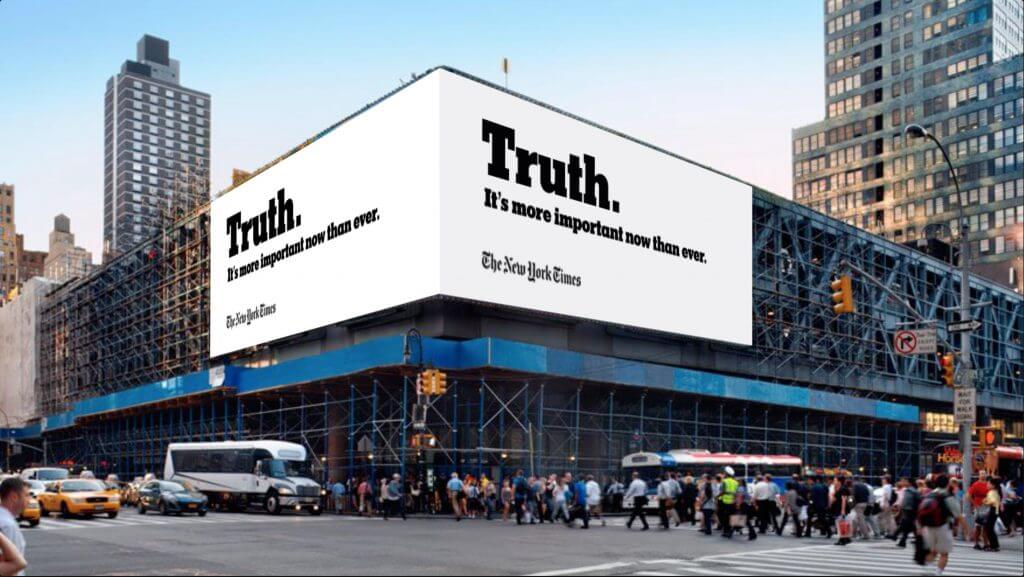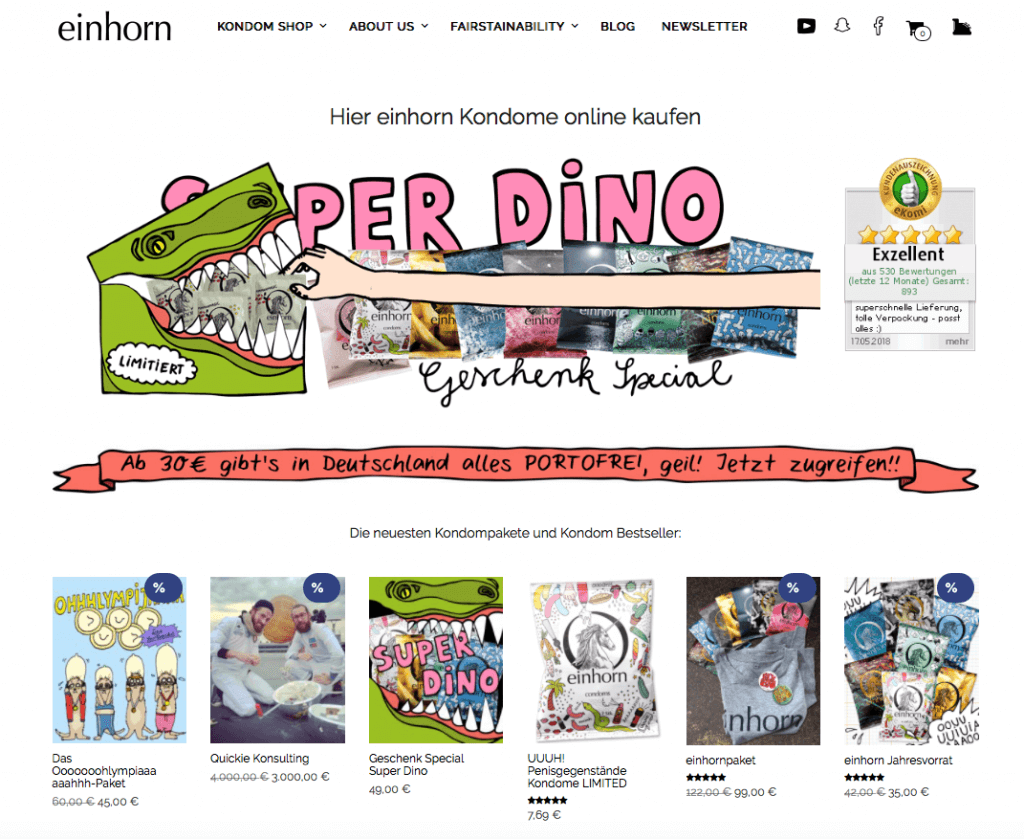Does depression also exist in brands and companies? - Yes! In my experience, more often than you might think. The particularly perfidious thing about brand depression is that it can be transmitted to people, is highly contagious and spreads like an epidemic.
The good news: brand depression is preventable. And curable.
Brand or corporate depression can be recognised by the following creeping symptoms, among others.
- The company is increasingly concerned with the competition and less and less with its own goals.
- In the company, the so-called circumstances in which one finds oneself are increasingly discussed.
- The staff talk more often about each other than with each other.
- Price is gaining importance as an argument.
- You think the work your communications agency does for its other clients is better than the work it does for you.
- Communication - e.g. advertising campaign - is often changed.
- One can no longer imagine the future in the company. - Ouch!
In human depression, a lack of messenger substances is assumed to be the trigger, but in brand depression it is definitely the case. The missing messenger is called purpose .
We humans cannot live well without meaning. The meaning in things gives us orientation and satisfies our longing to feel part of something bigger.
This creates relationship and meaning and that in turn gives us meaning and orientation.
A nutrient cascade in an endless loop.
That is why we humans subconsciously and automatically seek meaning, the messenger of our soul. Everywhere, also in brands, in companies - as employees and as customers alike. Because we define ourselves to a considerable extent by what and where we work and what we buy. Or don't buy. Buying in the literal and figurative sense, in other words: what we are for and against.
When I talk to brand managers, entrepreneurs or CEOs, it is usually because of a superficial communication topic. Regardless of whether the occasion is actually marketing or communication, or digitalisation and its manifold consequences, employer branding or an innovation task - the conversation usually lasts less than five minutes, then the question is: "Yes, who are we really? And if so, why?
More often than you think, the answer to this is: "Huh ...?" Quite often, even in large, successful, renowned companies. As a student of Marcus Aurelius, I have learned to hide my amazement behind a stoic face in these situations.
Profit, Sense, Value & Value ...
What is the purpose of your business? - "Hm ...?"
The quick answer is: "Make money, make profit!" Shareholder value, that is. Of course, it can't be about that. That would be as if eating were about the calories that enter the system. Yes, but there are good calories and bad calories, and besides, we could have simply eaten from tubes or small pressed cubes long ago. But I don't think anyone does that.
And we have been able to read so often in so many places where the disdainful shareholder value thinking is taking us that no one except Milton Friedman wants to go there any more. And not even he, I think ...
The meaning of a brand, beyond product benefit and price, is the only thing that works against brand depression, even preventively. Even more: for the brand, Sinn is a messenger substance, vitamin complex and growth and happiness hormone all in one. Recommended for regular internal and external use and not even available in pharmacies.
That's finally something really practical, isn't it?
So how do you get hold of this miracle cure? The Picasso method is recommended. The artist once said the beautiful phrase: "I don't seek, I find." And in terms of meaning, I might add: "Please find, not er-finden!"
Go back to the origins of the company. Why was it founded? What problem was waiting for a solution? What didn't exist yet and was urgently needed? Maybe nobody knew this before the company existed ... What is better since the company, the product, the service, the brand exists? What would be missing? What is it actually about for you? And what is behind it, emotionally?
Meaning blossoms, unfolds and spreads - like so much in our lives - in our stories. It comes alive in the most colourful diversity. With brands in the brand story, with people in their destiny - the life story, with companies, organisations and all with each other in the so-called concern. In the innermost core, this is rooted in at least one value or set of values. These values are worth fighting for, because without us they are in danger. If we cherish, cultivate and represent these values, then something will change in the world - ideally for the best.
Story is always change, though not necessarily for the better, because the mechanics of story are in principle value-neutral, just as not every value has the same meaning for everyone.
Do you fancy a cautious peek into my treasure box?
So please, here: This sentence offers a very simple method as a suggestion for finding or as a test of what has been found:
"Wouldn't it be fantastic if ... (value vision)? So if we make it ... then there will be ... / will be ... / will be ... better (Mission). If we do not succeed, then ... remains / happens ... (Pain). That's why we do ... (strategy)."
This could look like this, for example: "Wouldn't it be fantastic if people could find nothing but the truth in a secure place in times of fake news and alternative facts? So if we manage to spread the best news, facts and information, then there will be this place of truth and people can be secure in their orientation in this confusing world. If we can't, then the truth will be buried by noise, shouting and fake news and with it our democracy and our freedom. That's why we're making a media that is solely committed to the truth."
It's a really simple model and that's why it's effective. But difficult to apply, I know. The simple things are usually not easy to achieve. You can struggle with them for a few days. And it is said to have happened that one does not find the solution, but is found by it. Hurray, epiphany! But how!
Value-vision - mission - pain - strategy ... these are different elements that nourish each other and together form a strong fabric. The positioning is not even an issue in this phase, but very often the smooth logical consequence of it.
Once you've made it that far, life gets easier. In the development of your story anyway, but suddenly the brand depression symptoms disappear little by little.
Is actually only good good?
Quickly and often, brand purpose considerations lead to a field where CSR, sustainability, charity and the like thrive.
In principle, there is nothing wrong with this, as long as it is meant seriously and is also nourished from the brand's original core. Imposed measures that mainly make you feel good about yourself carry the seeds of failure and are rarely more than the noise before the defeat.
People smell marketing bullshit miles into the wind, and that's a good thing.
But also in the positive opposite: if companies really care about something and succeed in sharing this concern in a broad variety with a large audience, then there's a just reward of deserved success.
Often companies - i.e. explicitly profit business, not charity - are even founded on the basis of a genuine concern. Social entrepreneurship is booming, but it is not new at all - if you think of the beginnings of the Raiffeisen organisation, for example.
One of my favourite examples in this field is PatagoniaPatagonia, also because of its founder Yvon Chouinard, an exceptionally inspiring entrepreneurial personality.
His book "Let my people go surfing" he wrote with Naomi Klein, and I highly recommend it to you, as well as buying it at your local bookstore. Patagonia 's founding idea from 1973 still serves as a mission statement today: "Build the best product, cause no unnecessary harm, use business to inspire and implement solutions to the environmental crisis." In the meantime, Patagonia even produces food, and the company engages with its audience in a wide range of activities related to the mission statement - as a living example of meaningfulness beyond profit and shareholder value. Take a look at the Website you will understand what I mean. In any case, I may make a remote diagnosis: This company has been inoculated against brand depression with the big injection of meaning.
The situation is similar at Warby Parker a much younger company than Patagonia. They say: "When we started the company, we had two goals: 1. Offer an alternative to the overpriced and underwhelming eyewear that was available to us. 2.Build a business that could solve problems instead of creating them."
Of course, this does not only work in the USA. The Berlin-based company Unicorn is also so exemplary because everything from brand story, marketing and communication to implementation is done in-house by a small team, and with a lot of fun to boot.
Happiness also makes sense!
These are great brands built on the foundation of social change in the strict sense. But let's think about one of the oldest brands in the world, Coca-Cola. There is a very strong core value there that has remained alive in the most diverse variations for as long as I can remember: Happiness. Currently in the form of Moments of Happiness.
Happiness is an excellent source of meaning for a vital brand story that could be rolled out into countless involving activities, especially in this day and age. All you need to do is ask yourself a few inspirational questions, such as:
- Which moments bring happiness and which need more?
- What does happiness mean in different countries and cultures and how could we combine them to create new happiness?
- What do people need so that they can experience happiness in the future?
- Does happiness always and exclusively have to be associated with the consumption of Coca-Cola ?
It is all the more puzzling why the brand icon Coca-Cola does not succeed in doing much more and why, in the end, all they do is superficial advertising. So, dear Coca-Cola people: make something of it! Or send me a bag full of money and a few bottles of Coke Zero, and I'll tell you a few more questions and the answers to them ...
A company without meaning is meaningless, a brand without values is worthless. That's what Story is all about.
Story is a question of attitude and an indispensable necessity for successful communication anyway, but also for a successful company and for the existence of a brand. Regardless of whether it's a global corporation, an SME or an EPU - every person, every brand, every company has a story and stands for something. If not, it becomes depressing and only one issue remains, one way or another: the price.
That's why my grandmother, old Story Dudette, once said when she rose from the couch in Vienna's Berggasse 19, smiling thanks to an epiphanic burst of insight: "Read my lips, Sigmund - No Story. No Glory."




